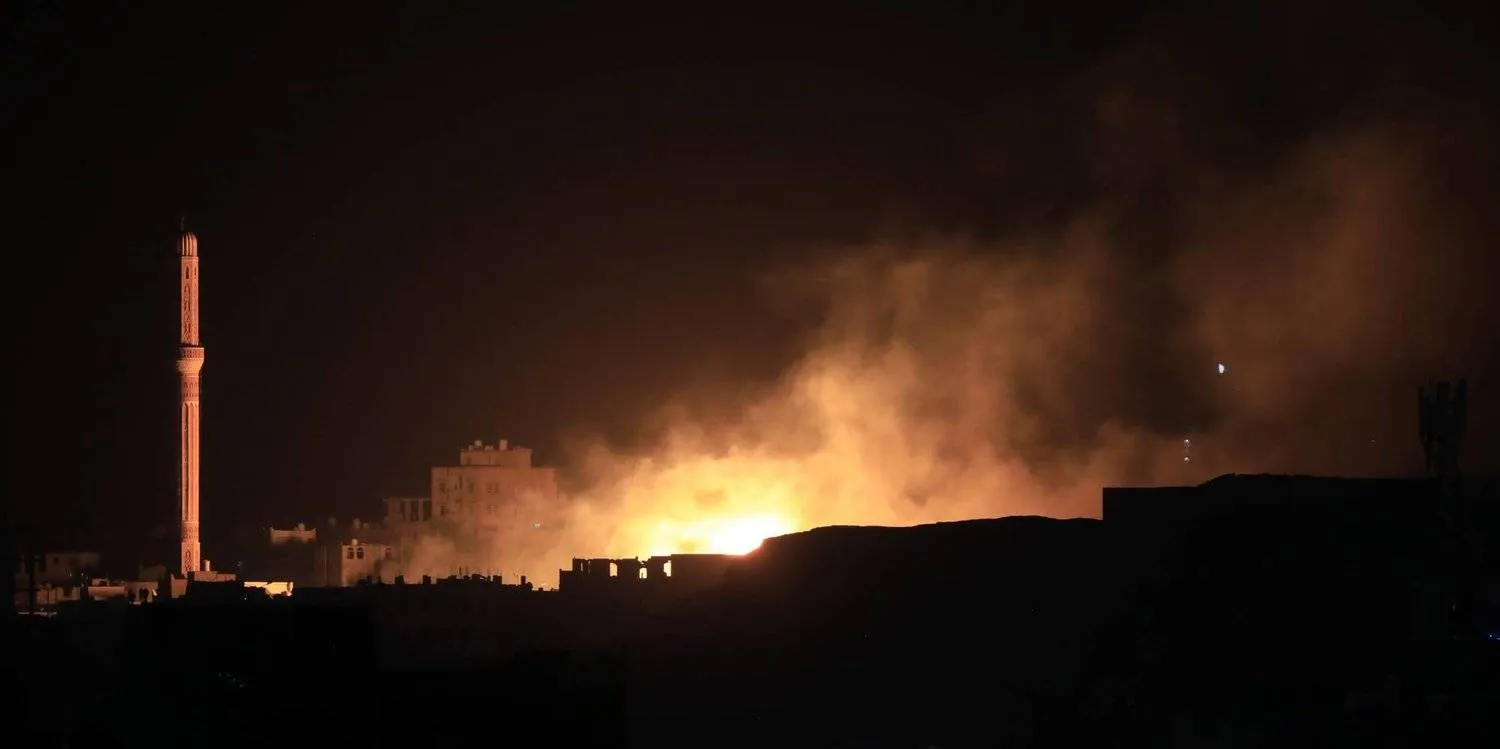The recent explosion of a cooking gas tank in north Sanaa revealed the worsening of the risks facing the lives and safety of residents of cities controlled by the Houthi coup militia, who already suffer from a severe gas shortage.
The militias deal with the residents' protests recklessly.
A few days ago, a resident of the al-Khaniq neighborhood received death threats after demanding that a gas station be moved outside the area.
The incident was preceded by Houthi gunmen attacking a protest demanding the transfer of the gas storage and filling station outside the neighborhood after the explosion at the station, which damaged nearby homes and displaced the residents.
A gas tank in a warehouse belonging to the Houthi loyalist businessman Ali al-Mafzar exploded nearly two weeks ago, destroying two homes and a mosque.
The explosion was heard throughout Sanaa, causing great panic, and flames were seen in distant areas inside and outside the capital.
Houthi supporters who ran the gas trade sector claimed the fire was likely caused by an electrical short circuit at the station, which triggered the blast of a gas trailer in the station's yard.
Yemeni activists accuse the Houthi militias of orchestrating the incident to blackmail the Mafzar family as part of their practice of bankrupting the private sector.
They believe that they are using the sit-ins to pressure the family.
In Hodeidah, a massive fire broke out in a station belonging to a Houthi supervisor in the commercial district late last August.
The fire did not cause damage to the surrounding buildings or the people. It caused great panic and forced the neighborhood’s residents to escape.
Back then, the Houthi militias prevented the publication of pictures about the incident.
- Stations everywhere
Social media activists circulated dozens of videos of explosions and fires at the gas black market and stations used by the Houthis to increase their revenues.
The group accuses the legitimate government and the coalition supporting it of creating these crises.
Ahmed al-Ansi said he had to flee from the vicinity of gas storage and stations twice when explosions occurred in a neighborhood west of the capital.
At the time, Ansi lived on the same street where the station exploded, causing several casualties and destroying residences and shops.
Ansi, who owns a mobile phone shop, explained that they were surprised that the station was rebuilt a few days after the incident, which prompted him to move his residence, fearing it might happen again.
However, a station was built near his new residence after settling in there for weeks.
Ansi also had to close his mobile phone shop on Sixtieth Street, near his residence, and moved to another store nearby. However, he later discovered a station behind the building of his new store.
Hardly a week goes by without one or more explosions or fires erupting at Houthi gas stations and points of sale in several governorates and regions under Houthi control.
- Boycott in Ibb
The Houthi militia usually refrains from commenting on such incidents and never sought to move these stations outside residential neighborhoods. However, they may, at times, make promises to solve the issue.
Six years ago, a black-market gas station exploded, and a huge fire broke out, prompting residents to flee the area.
Activist and engineer Fouad Shaher said that due to the residents’ complaints, Houthi leader Abdul Wahed Salah vowed to relocate the stations outside the neighborhoods, and in response the people ended their protest.
They discovered months later that these stations had doubled and spread throughout all areas, threatening everyone.
The residents implicitly agreed to boycott any station whose owner or supervisor did not respond to their demands to move it away from the homes, which forced them to react and reduced the number of incidents.









